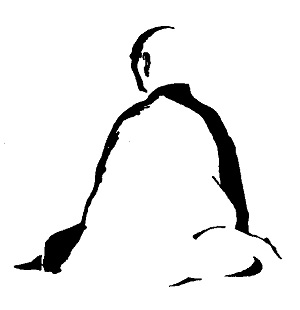|
thoughts || q & a || kalama || books || photos || tiếng việt | ||||
| | ||||

| 
| |||
|
Eight Precepts The Eight precepts are the simplest way of guarding the 6 sense bases.
It follows that:
Eyes and ears are not to be used to perform or to view dancing, music, entertainments. Nose is not to be used to smell fragrances, perfumes. Tongue should retire after 12 midday, it should go on holiday until the next morning.
The 3rd and 8th precepts apply to the body. The body is not to sense and enjoy any pleasures from touch, either sexually or from the comfort of high, soft and expensive beds.
When you control the 5 bodily senses, you also control the 6th ("mind" created from the other 5 senses). Beside this, restricting the 6th sense base involves not only recognising bad thoughts, but also finding stability in good thoughts.
This is one definition we must always carry with us, because it is the result of combining carefully chosen details in the teachings. We must carry this with us so we can apply it when we practice meditation or study Buddha's texts. When asked "How to control mind?" The answer should be "Recognising Bad Thoughts, and Finding Stability in Good Thoughts." - That is stabilising the Good Mind.
So, when I meditate and follow my breathing, that is stabilising the Good Mind. I truly know that I am walking, standing, reclining, sitting, eating, drinking, urinating, picking up, putting down ... that is stabilising the Good Mind. Living in the Right Mindfulness is stabilising the Good Mind.
But then I realise: Oh, Greed! Oh, Anger! Oh, loss of focus! Oh, loosening of mindfulness! - That is when I have Recognised Bad Mind.
So control the Mind has only 2 objectives: Recognise Bad Thoughts and Find Stability of Good Mind.
Six Sense Bases 1. Eye sees Forms Eight Precepts
1. No killing
In Buddhism, the eight precepts (Sanskrit: aṣṭāṇga-śīla or aṣṭā-sīla, Pali: aṭṭhaṅga-sīla or aṭṭha-sīla) is a list of precepts that are observed by lay devotees on observance days and festivals. They include general precepts such as refraining from killing, but also more specific ones, such as abstaining from cosmetics. Probably based on pre-Buddhist brahmanical practices, the eight precepts are often upheld on the Buddhist observance days, and in such context called the uposatha vows or one-day precepts. They are considered to support meditation practice, and are often observed when staying in monasteries and temples.
| ||||
thoughts || q & a || kalama || books || photos || tiếng việt


